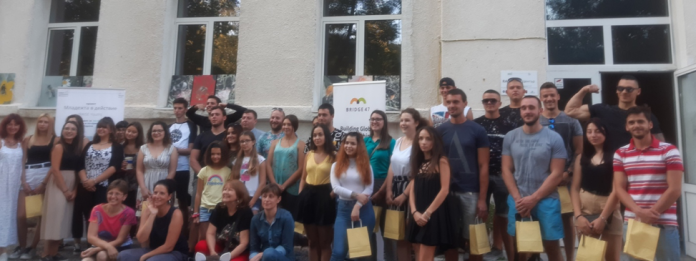For the past 25 years we, at the Centre for Sustainable Communities Development-Bulgaria, have been helping thousands of people in dozens of projects. And we are sure that most of you who are reading this have similar or even greater experience.
But this is not the point of this article. The point is exactly the opposite – the people we could not help. Not because we could not do it, but because they did not want to be helped. In Bulgaria we have a saying: You can take by force – but you cannot give by force.
The NGO sector brings together people of various interests and abilities, united under a single virtue – helping others. And in this we may sometimes be too naïve. Who would not want to be better educated? To receive assistance in building his/her business, career and future from the ground up? Sadly, very many people.
Why, we ask ourselves, year after year? For many reasons. I remember the opening of “Anna Karenina” by Leo Tolstoy: “All happy families are alike, but every unhappy family is unhappy in its own way”.
As you are aware, the RAISE Youth project deals with young people who are neither working nor studying. Of course, we don’t have any data or studies to back up this claim, but our gut feeling is that more often than not these people choose not to do anything. They choose to simply exist rather than live. Because sometimes it is easier. Because they do not know better. Because they live in a poor community with limited options. Because they do not have the support of their family. Because they do have the support of their family which is taking care of them. And so on, and so on.
Especially in this project, we have faced many such individuals who were profoundly happy to meet us and learn about the possibilities offered by us but profoundly unwilling to do anything to benefit from it, to even try.
Understandably, this makes us feel defeated sometimes. But we would not be here, and neither would you if we gave up so easily. So, we try different approaches to win the attention of these people, to speak their language, to make them act for their own sake!
One of the ways in which we try is to be more provocative in our calls. For example, a recent notice for training we organised had the following title: “Are you expecting your mom and dad to take care of you forever?”
This links to another strategy we try to implement – to focus our attention on parents and grandparents. Very often they could become the driving force for their kids to do something (as well as hold them back). So instead of only targeting and communicating with young people who are very often unwilling to receive our information, we try to reach the older, more mature members of their families, who might just say “hey, kiddo, I am sick and tired of you playing games all day or drinking, look at this thing – RAISE Youth – it might give you an idea what to do with your life”.
Meanwhile, we are not abandoning traditional approaches and ways of politely communicating with the authorities and local communities, including young people. But it does not hurt to try to be a bit more assertive.


